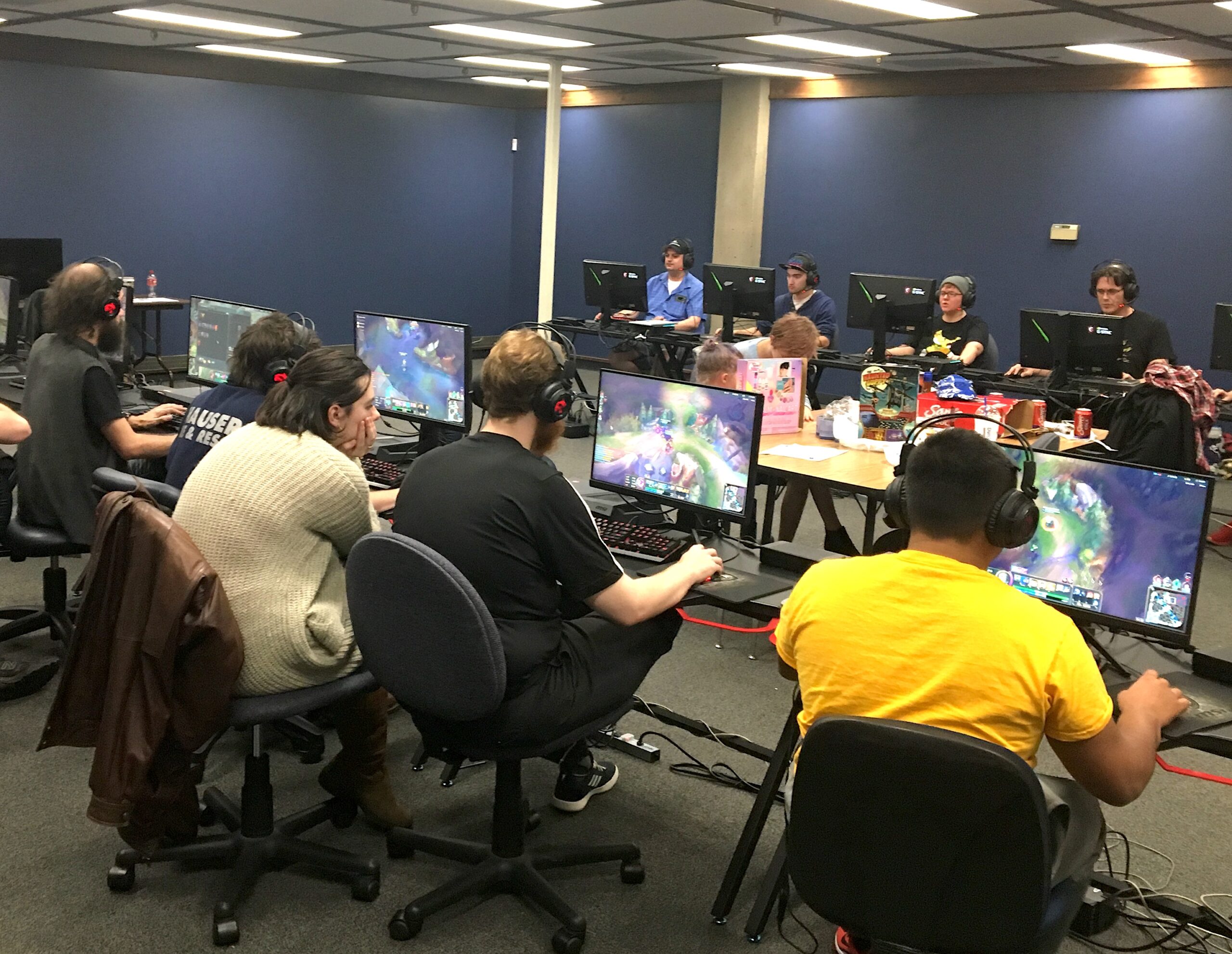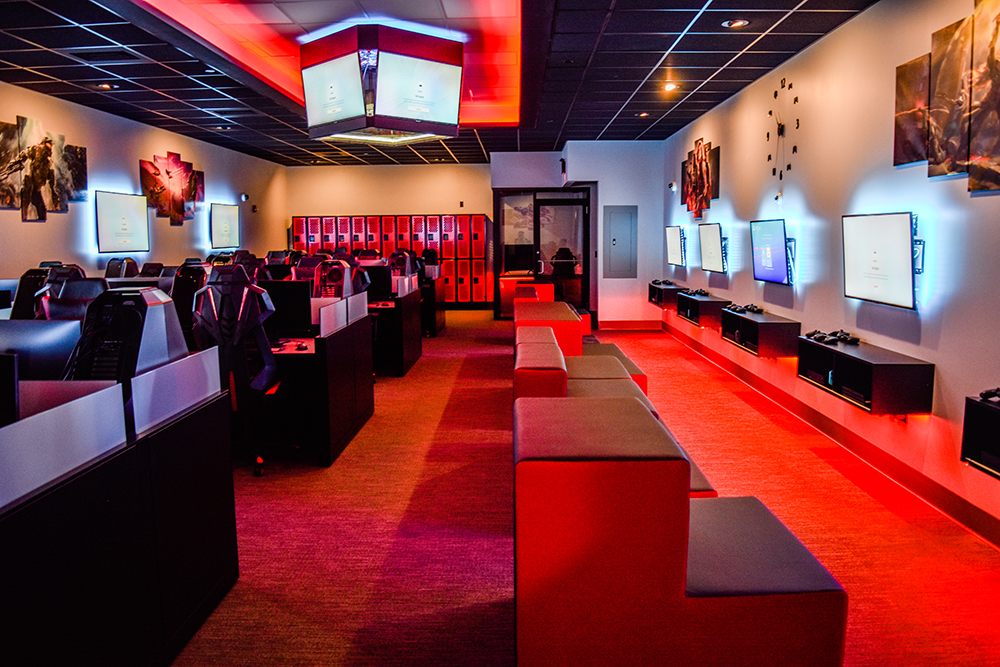Students tell team coach Tasha Livingstone that Southwestern Oregon Community College‘s esports is the reason they enrolled.
These students have also become more engaged in their classes since the community college started varsity and junior varsity esports teams this September, says Livingstone, who is also an instructor of forestry and natural resources.
“As somebody who grew up in gaming, I know there are a lot of stereotypes that are not at all accurate,” she says. “I see the merits in terms of team-building and communication skills, and the other skills that are sometimes lacking in high school graduates.”
The team knocked down a wall between two campus computer rooms to create a larger place to play.
More from UB: The college esports juggernaut keeps on rolling
Livingstone now coaches 15 students on two teams that compete against students from two- and four-year college with esports teams in the games League of Legends and Overwatch.
Some of her students also hope that playing esports will help them win scholarships to transfer to four-year schools, she adds.

That’s one reason esports is catching on quickly at community colleges across the country.
Administrators at Southwestern Oregon and other community colleges have found that esports not only raises the academic enthusiasm of current students, but also attracts more full-time students to their campuses in today’s challenging enrollment environment.
Community college esports is ‘just like in football’
Central Maine Community College has hit its highest enrollment ever at 3,200 students. How did administrators reach this benchmark?
“It’s not just esports, but esports has a huge stake in it,” says Andrew Morong, the director of admissions and high school relations. “One of the best things esports provides is that inclusivity.”
Within just a year of planning, nearly 80 students jumped on board, helping to form a dozen esports teams (schools typically form separate teams for different games). The community college now has 200 applications from prospective students who want to enroll and play esports in fall 2020.
More from UB: How mighty Kansas is building a varsity esports program
“We had students who live in the same dorm, on the same floor, who had never communicated before,” Morong says. “You put them together on an esports team and they realize they have something in common, and they start talking, and then you see them later in the week getting meals together. That in itself pays for the whole thing.”
The community college’s new 1,600-square-foot esports arena has 30 PCs and a broadcast booth for livestreaming. An April grand opening for the arena, was the college’s highest-ever turnout for a campus open house.

The community college, which just brought on board its first corporate esports sponsor, has also created an associate degree in esports management, with 18 students enrolled and 30 applicants for next fall.
Central Maine will also hold the state’s first big collegiate tournament in May. It will be livestreamed and shown on a Jumbotron in the school gym, with tickets for sale to the general public.
At Garden City Community College in Kansas, David Larsen only had to walk the campus for a few days to find 12 students to join the college’s new esports team, which started play Oct. 2.
Larsen, a staff software specialist, and other community college personnel quickly adapted a conference room to provide space for the esports team. It offers movable tables as well as Sony PlayStation 4 and Nintendo Switch consoles. The team doesn’t have its own PCs yet, but expects to get about a dozen in the near future.
“Just like in football where you have playbooks every week, students have to put a lot of time into esports,” Larsen says. “Instead of learning plays, they’re going through the movement of characters and learning their strengths and weaknesses.”
‘Competitive and character-building’
Hawkeye Community College’s esports teams practice and compete in an arena that’s located in a highly visible part of the Iowa school’s student center.
The goal was to generate interest and support for the esports eam, which was the first at an Iowa community college when it debuted two years ago. The school launched its general sports programs three years earlier as a way to boost enrollment, Director of Athletics Dave Ball says.
Twenty-six students compete for the community college in two esports games: League of Legends and Overwatch. The community college plans to add esports teams in a few more games soon, adds Ethan Crawford, the associate director of athletics.
“Similar to other sports, the students come in and right away they have a sense of belonging and community, a sense of something that’s bigger than themselves,” Crawford says.
All sports team members must maintain a certain GPA and be on time for all practices and competitions, he adds.
When it comes to boosting enrollment, athletics is an effective approach because administrators can predict how many new students will enroll based on roster sizes for each team.
More from UB: Butler esports expansion includes student union, garage
That, in turn, makes the return on investment clear, Ball says.
“We knew with esports that the general person out there may look at the negative side, thinking students game all night in their basements and don’t do anything else,” Ball says. “We really tout the fact that our students are very competitive and team-oriented in a real character-building sport.”
Matt Zalaznick is senior writer
Interested in esports? Keep up with LRP’s Academic Esports Conference and Expo.






